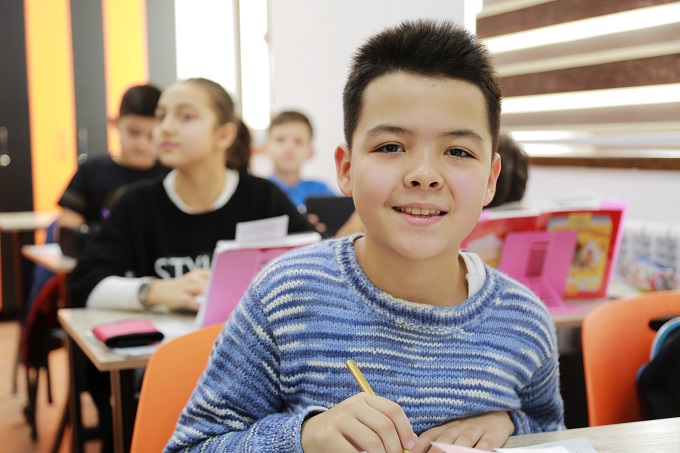
Photo by Kuanish Reymbaev
“This upgrade package is part of a pipeline of investments to improve our schools and it will create and support jobs for local tradespeople and businesses. The Ministry of Education and schools will engage local builders, plumbers, carpenters, roofers, technicians and landscapers, who will in turn need to buy products and supplies from local stores,” Chris Hipkins said.
“Classrooms at almost 600 small or remote state schools will be tested to assess lighting quality, noise levels and temperature. All schools that need improvements such as LED lights, acoustic panelling and ceiling insulation will receive them, with work starting later this year.
Small or remote schools face higher costs to deliver these kinds of improvements due to their size or location. Eighty-four state-integrated schools will be able to opt in.
NZEI Te Riu Roa President Liam Rutherford says the programme, which includes upgrades to classrooms at 600 remote or small schools and kura, is a good example of spending that addresses a longstanding infrastructure deficit while providing much-needed economic stimulus during the Covid-19 recovery.
“NZEI Te Riu Roa welcomes the Government’s move to bring forward infrastructure spending as part of the economic recovery from Covid-19. There are plenty of glaring examples of where the spending is needed due to years of under-investment, and upgrading rural classrooms is certainly one of them,” he says.
“While the Government will be considering plenty of physical infrastructure projects, we’d also urge them to make sure the recovery includes investment in our social infrastructure. In education, the Covid-19 recovery presents a huge opportunity to fund bold ideas that will create a world class, inclusive public education system that will meet the needs of all tamariki.”
(This fund is in addition to the investment that will be provided through the clean-powered public service fund announced in January.)
Chris Hipkins also announced funding from the Sustainability Contestable Fund will support projects at 53 schools around New Zealand.
“A total investment of nearly $2.5 million has been allocated today to the first group of successful schools, with additional funding for round two later this year. Projects will save schools money and reduce emissions. Work can start straight away.
“Nearly half of the approved applications were for solar panels. Other innovations included rainwater collection, water conservation initiatives and different ways to compost and recycle.
“A stand out for me was Glenholme School in Rotorua, which is replacing its gas boiler with a geothermal heating system that will heat the school, its water supply, and the swimming pool.”
Minister for Climate Change James Shaw welcomed the investment.
“Children today are growing up worried about the impact climate change will have on their future. This Government is helping to make sure the places they go to learn can be a part of the solution. It is another example of the progress we are making to ensure clean, environmentally friendly solutions are part of our everyday lives.
“New, climate-friendly ways of keeping children warm and the lights on, as well as additional support for school-based conservation initiatives, will also provide an opportunity for children to learn about the steps we can all take to reduce our impact on the environment,” James Shaw said.
Of the $400 million School Investment Package announced in December, projects at 149 schools, worth $23.67 million, have now got the go-ahead, Chris Hipkins said.
“Applications from schools slowed during the level 4 lockdown but the Ministry expects applications to ramp up and building and maintenance work at schools will resume as we move down alert levels.”
“With the country now at Alert Level 3, construction work will be restarting at almost 250 schools over the next few days.
“And over the coming months, construction will start on many more projects, which together are valued at over $100 million” Chris Hipkins said.
These projects include:
“These projects are a part of a massive pipeline of government initiatives that will give big and small business confidence to retain and grow their workforces and build infrastructure for the good of all New Zealanders.”
A new report from the University of Auckland’s Our Voices Project asks young people what…
The government has opened a tender for new standardised assessment tests, leaving educators shocked and…
Early in her career, Kiri Turketo found inspiration in an unlikely source. In this Principal…
Real stories of dedication, challenges, and triumphs from educators in NZ. Part six comes from…
Is fast furniture impacting your school's environmental footprint? We explore eco-friendly solutions to reduce furniture…
A new report from the New Zealand Initiative argues we need a stronger and clearer…
This website uses cookies.